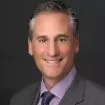Over the past decade, there have been several court decisions on whether particular make-whole premiums should be allowed as part of a creditor's claim in bankruptcy, such as Momentive,1 EFH,2 American Airlines,3 and Ultra Petroleum.4 Although these decisions and others set forth the legal standards to be applied and resolved the specific claims at issue, the decisions provide little guidance or clarity on the allowability of make-whole claims in future cases. In a recent decision in the Hertz bankruptcy cases,5 the United States Bankruptcy Court for the District of Delaware allowed certain make-whole claims, but disallowed others, continuing this uncertainty for future situations.
I. Background
Make-whole premiums are amounts that the borrower/issuer is contractually required to satisfy, in addition to the total amount of obligations otherwise outstanding, in the event it chooses to pay off loans or redeem bonds prior to their scheduled maturities. These premiums are designed to compensate lenders and bondholders for the loss of anticipated yield and are most commonly based on a formula related to the present value of the future interest payments the borrower/issuer is avoiding by paying off the debt early. Bankruptcy courts look to state law to determine whether such claims should be allowed as part of a claim in bankruptcy.
In general, for a contractual make-whole premium to have any chance of being recoverable in bankruptcy, it must be due and payable pursuant to the language of the underlying loan document or bond indenture. Then, assuming the documentation entitles the creditor to such a recovery, there are various additional steps that might be required, such as an analysis of whether the particular make-whole at issue might constitute a penalty (in which case it would not be recoverable) or whether it might more properly be characterized as liquidated damages (which may be recoverable under certain circumstances). In bankruptcy, courts also sometimes require that the make-whole premium not be considered "unmatured interest," which is specifically disallowed as part of a claim in bankruptcy under Bankruptcy Code § 502(b)(2).
Bankruptcy Court's Decision in Hert
Hertz, the rental car company, filed for bankruptcy in May 2020, after its revenues had plummeted as a result of the COVID-19 pandemic. The company considered several exit strategies and eventually settled on a plan of reorganization that would pay off its outstanding funded debt in full. The issue that ended up in litigation was whether the holders of various series of unsecured notes were entitled to payment of contractual make-whole premium claims as part of such payment in full.6
In the context of a motion to dismiss such litigation, the Hertz court focused on the first test for whether a make-whole premium should be allowed in bankruptcy – i.e., whether the language of the indentures provided for such payment under the circumstances. The indentures for certain notes provided that the make-whole premiums would become due and owing if there were a redemption prior to "maturity." Those notes automatically accelerated upon the bankruptcy filing, and the court therefore held that the subsequent redemption under the plan of reorganization at the conclusion of the bankruptcy case did not trigger a make-whole premium, because the notes had already "matured" as a consequence of the bankruptcy filing.7
The indentures for certain other notes provided that the make-whole premiums would be become due and owing upon redemption at any time prior to a specified date, rather than at maturity. Because that date certain had not yet occurred, the court held that the make-whole premium was earned when the notes were redeemed under the plan and therefore met that threshold for allowance. The court then noted that such claims could still be disallowed if the make-whole premium were to be determined to constitute the economic equivalent of unmatured interest, and the court has requested additional factual evidence from the parties on this point.8
III. Conclusion
The principal takeaway from Hertz and the other decisions referenced herein that may inform how courts will treat make-whole premium disputes in future bankruptcy cases is that such claims have no chance of being allowed unless the applicable provisions permitting such claims entitle the creditors to such amounts under the circumstances. Beyond that, any future court analyses will be highly dependent on events and facts that have not yet occurred. For these reasons, interested parties should be careful not to rely on any one decision regarding the potential allowability of future make-whole premium claims and should be skeptical of any predictions regarding the outcome of any future litigation. Indeed, there is significant uncertainty that parties should take into consideration when investing in debt instruments that contain make-whole premium provisions, and it would not be advisable to assume that any particular make-whole claims will be allowed in a future bankruptcy case.
Footnotes
1 Momentive Performance Materials, Inc. v. BOKF, NA (In re MPM Silicones LLC), 874 F.3d 787 (2d Cir. 2017) (disallowing make[1]whole claims where maturity date was accelerated by bankruptcy filing and subsequent redemption was thus not optional).
2 In re Energy Futures Holdings Corp., 842 F.3d 247 (3d Cir. 2016) (allowing make-whole claims where redemption was optional because maturity was linked to specific date).
3 In re AMR Corp., 730 F.3d 88 (2d Cir. 2013) (disallowing make-whole claims where loan documents stated that make-whole would not be due in bankruptcy).
4 In re Ultra Petroleum, 943 F.3d 758 (5th Cir. 2019) (remanded to determine whether make-whole claims are unmatured interest).
5 Wells Fargo Bank, N.A. v. Hertz Corp., 2021 Bankr. LEXIS 3491 *; 2021 WL 6068390 (Bankr. D. Del. Dec. 22, 2021).
6 Hertz, 2021 Bankr. LEXIS 3491 at *4-14.
7 Hertz, 2021 Bankr. LEXIS 3491 at *16-18.
8 Hertz, 2021 Bankr. LEXIS 3491 at *18-25.
To subscribe to Cahill Publications Click Here
The content of this article is intended to provide a general guide to the subject matter. Specialist advice should be sought about your specific circumstances.


